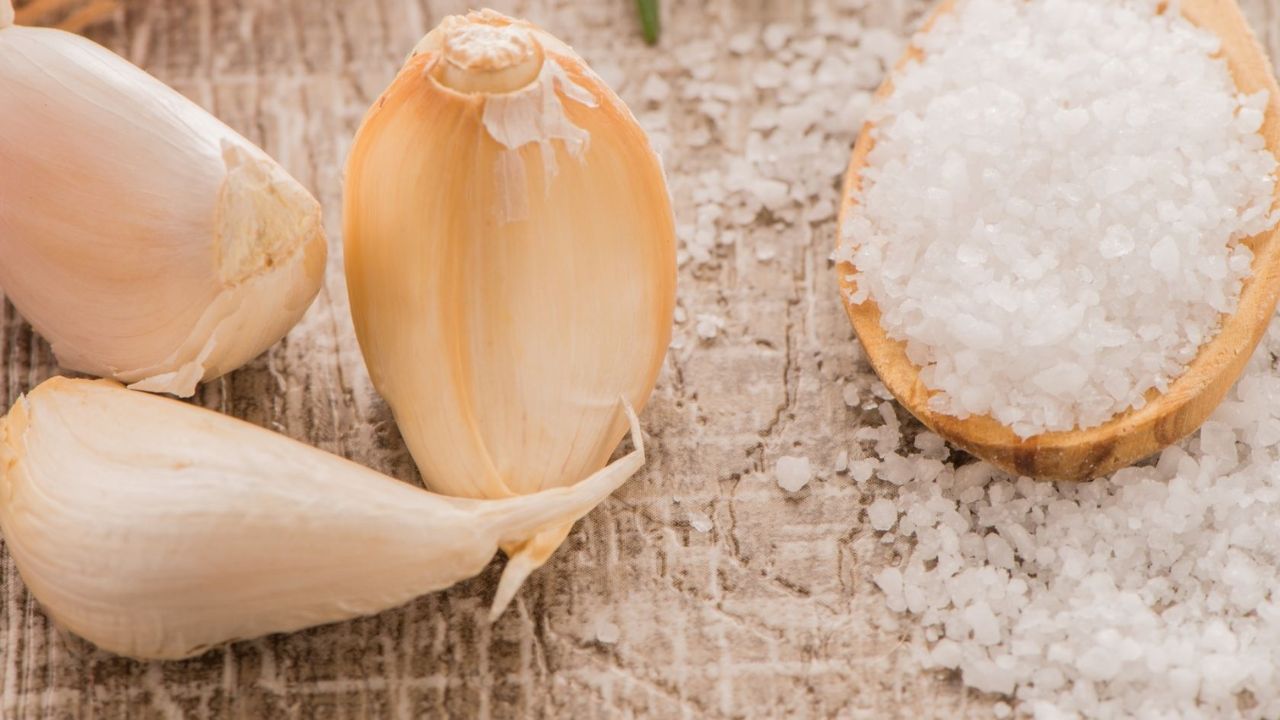Onion salt is a popular seasoning that adds flavor and depth to many dishes, from soups and stews to dips and marinades. Made by combining onion powder with salt, onion salt is a convenient way to add both savory and salty notes to a recipe.
However, there are several reasons why you might need a substitute for onion salt. Perhaps you have a dietary restriction that prohibits the use of salt, or you don’t have onion salt on hand and need a replacement ingredient. Whatever the reason, there are several options for substituting onion salt that can still give your dish the flavor it needs. In this article, we’ll explore the seven best substitutes for onion salt, how to use them in different dishes.
What is Onion Salt?
Onion salt serves as a convenient replacement for chopped onions, especially when you’re short on time or aiming to impart onion flavor to your dish without the added volume of more ingredients. It’s composed of dehydrated onion powder and salt, and can be added to a variety of recipes that call for onions, including soups, stews, and meats. It’s important to distinguish onion salt from onion flakes or onion powder, which lack the addition of salt.
Best Onion Salt Substitutes
1. Garlic Salt
Garlic salt is a classic seasoning that combines garlic powder with salt, much like onion salt. As the name suggests, garlic salt has a strong garlic flavor that can be used as a replacement for onion salt in many dishes.
To use garlic salt as a substitute for onion salt, simply use it in the same quantity as the onion salt called for in the recipe. Keep in mind that garlic salt is saltier than onion salt, so you may need to adjust the amount of additional salt you add to the dish.
Garlic salt is particularly good in dishes that already feature garlic prominently, such as garlic bread or roasted vegetables. It can also be used to add depth to soups, stews, and sauces.
2. Celery Salt
Celery salt is another seasoning that combines a vegetable powder with salt, this time using celery instead of onion or garlic. Celery salt has a slightly tangy flavor and can be used as a replacement for onion salt in many dishes.
To use celery salt as a substitute for onion salt, use the same quantity as the onion salt called for in the recipe. Keep in mind that celery salt is also saltier than onion salt, so you may need to adjust the amount of additional salt you add to the dish.
Celery salt is particularly good in dishes that feature celery as a prominent ingredient, such as potato salad or coleslaw. It can also be used in marinades and rubs for meat dishes.
3. Powdered Onion
If you don’t have onion salt on hand, you can make your own by combining onion powder with salt. Onion powder is simply dehydrated onions that have been ground into a fine powder, and can be found in most grocery stores.
To make onion salt, combine one part onion powder with three parts salt. Use this mixture as a replacement for onion salt in the same quantity called for in the recipe.
Powdered onion is particularly good in dishes where you want the flavor of onions without the texture, such as meatloaf or meatballs. It can also be used in soups, stews, and sauces.
4. Powdered Garlic
Like powdered onion, powdered garlic is a convenient way to add garlic flavor to a dish without the texture of fresh garlic. It can be used as a replacement for onion salt in many dishes.
To use powdered garlic as a substitute for onion salt, use the same quantity as the onion salt called for in the recipe. Keep in mind that powdered garlic is salt-free, so you’ll need to add additional salt to the dish if the recipe calls for it.
Powdered garlic is particularly good in dishes where you want a strong garlic flavor, such as garlic bread or roasted vegetables. It can also be used in soups, stews, and sauces.
5. Minced Onion Flakes
Minced onion flakes are dehydrated onions that have been chopped into small pieces, much like dried herbs. They have a similar texture to onion salt, but without the added salt.
To use minced onion flakes as a substitute for onion salt, use the same quantity as the onion salt called for in the recipe. Keep in mind that minced onion flakes may take longer to rehydrate than fresh onions, so you may need to soak them in hot water or broth before adding them to the dish.
Minced onion flakes are particularly good in dishes where you want the texture of onions, such as meatloaf or meatballs. They can also be used in soups, stews, and sauces.
6. Onion Powder and Salt
If you have onion powder and salt on hand, you can combine them to create your own onion salt. This is a convenient option if you don’t have onion salt on hand and don’t want to make a large batch of it using the powdered onion and salt method.
To make your own onion salt, combine equal parts onion powder and salt. Use this mixture as a replacement for onion salt in the same quantity called for in the recipe.
Onion powder and salt are particularly good in dishes where you want the flavor of onions and the added salt, such as in marinades or rubs for meat dishes. It can also be used in soups, stews, and sauces.
7. Shallots
Shallots are a type of onion that have a milder, sweeter flavor than regular onions. They can be used as a replacement for onion salt in some dishes, particularly those where a subtle onion flavor is desired.
To use shallots as a substitute for onion salt, finely chop the shallots and add them to the dish in the same quantity as the onion salt called for in the recipe. Keep in mind that shallots are not as salty as onion salt, so you may need to add additional salt to the dish.
Shallots are particularly good in dishes where you want a milder onion flavor, such as in vinaigrettes or salad dressings. They can also be used in sauces and marinades.
Conclusion
In conclusion, whether you’re out of onion salt or need to find a substitute for dietary reasons, there are several options to choose from. Garlic salt, celery salt, powdered onion, powdered garlic, minced onion flakes, onion powder and salt, and shallots can all be used as replacements for onion salt in different dishes.
When using a substitute, keep in mind the saltiness of the ingredient and adjust the amount of additional salt you add to the dish accordingly. And in some cases, it may be best to avoid using a substitute altogether to preserve the unique flavor of the dish.

